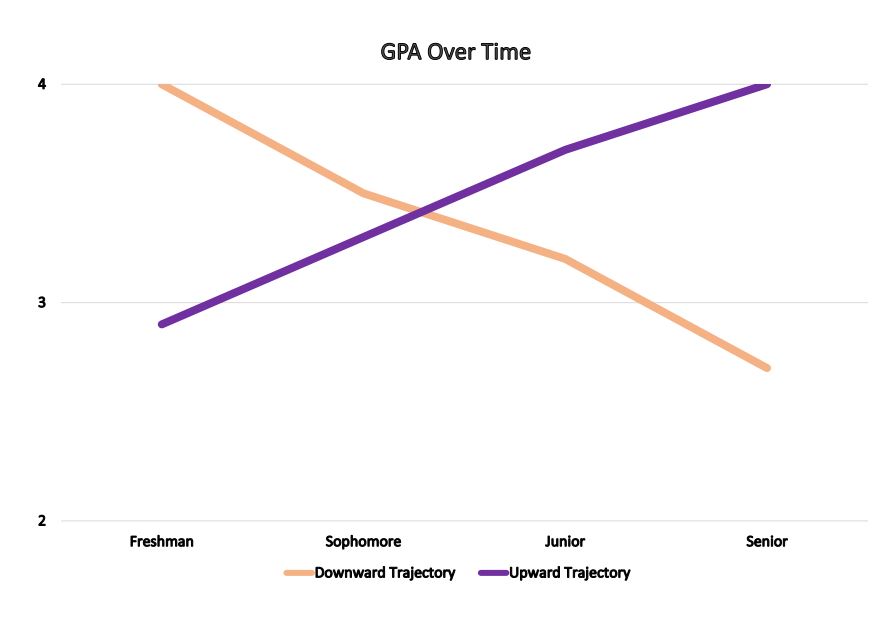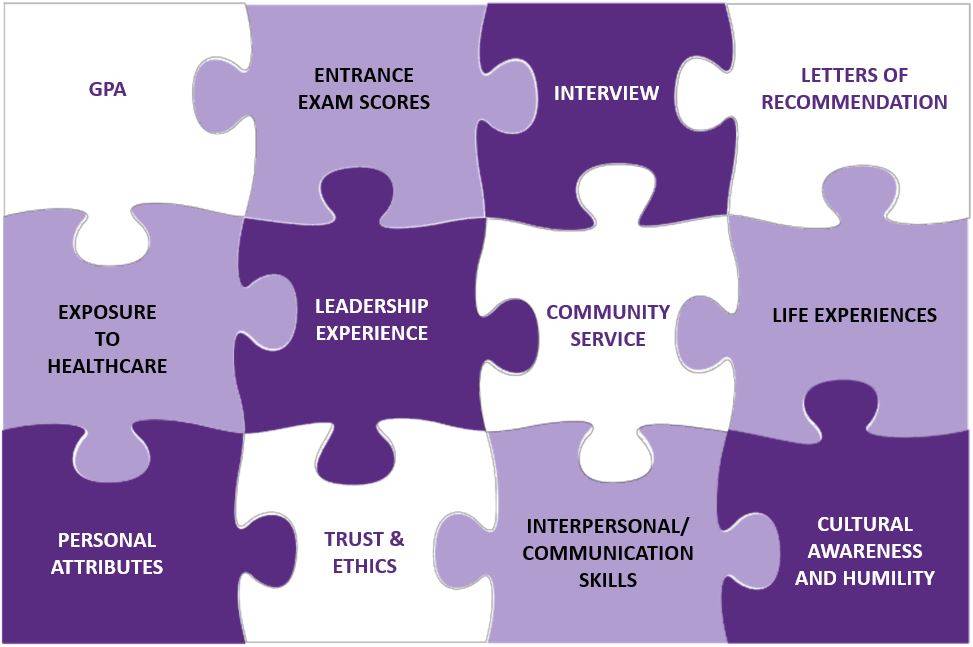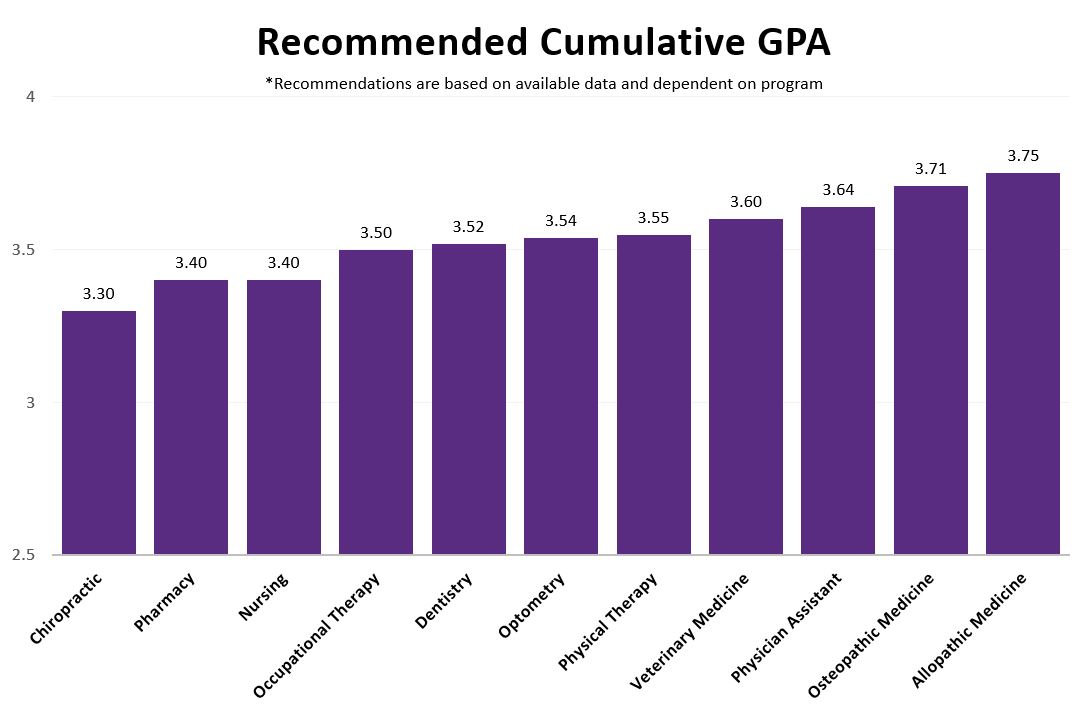Becoming a Competitive Applicant—Metrics
At some point in your pre-health journey, you may have heard the words “holistic review in admissions,” but students are often confused about what this practically means in the admissions process for health professional schools. Essentially, “holistic review” means admissions committees review applications with the whole person in mind.
There are many aspects of an application that matter to admissions committees. The AAMC’s Experiences - Attributes - Metrics (E-A-M) model explains the various components that make up a competitive professional school application. This blog will focus on the metrics part of the EAM Model.
As you may have noticed, over the course of our three-part blog series about the EAM Model, this is the first time we are mentioning anything related to GPA or entrance exam scores. While it is important to note that GPA and exam scores are not the only consideration on your application, they are still predictors of academic success in professional school, and thus will be heavily considered in admissions decisions.
Healthcare programs want to do the best they can to ensure they are admitting students who will be able to handle the rigor of their curriculum, which is where metrics come into play. Make sure to pay attention to not only the minimum GPA required to apply to professional school, but also the average GPAs of students who are admitted, and do the same for entrance exam scores.
As programs analyze your coursework, it is possible they will view your GPA in several different ways:
Cumulative GPA: This GPA includes ALL of the college courses you have taken, including classes you took from institutions other than KSU (e.g., community colleges)
Science GPA: This GPA is calculated using only your grades from your science coursework. The types of classes that qualify as “science” vary based on your pre-health designation.
Prerequisite GPA: This GPA is calculated using only your grades from the classes that were required as prerequisites for the program you are applying to.
Last 60 GPA: This GPA is calculated using your grades from the classes you took for the last 60 credit hours of your undergraduate education.
Viewing GPA in these different ways can help program admissions committees better understand your academic preparedness.
In addition, professional schools know that students often encounter semesters that challenge them academically and/or personally. Overall, you want your GPA to show an upward trajectory, meaning that even if you have a difficult semester, you are still showing progress in your academics over time.
For example, you would rather have your GPA look like the purple line in the image below, which shows improvement, as opposed to the orange line, even if the final cumulative GPAs average out to be the same. 
On the other hand, for students who have above-average GPAs and entrance exam scores, make sure you don't fall into the trap of thinking that your metrics alone will get you into professional school. The experiences and attributes of candidates are equally as important to admissions committees as their metrics.
So, what should you do with this information?
- We know that maintaining an excellent GPA is HARD WORK. Having difficulty with a class doesn’t mean you can’t succeed—it might just mean you need to find new study strategies that work better for you. Utilize KSU’s free resources to help you succeed in your classes, including Tutoring Services and Academic Coaching. We also recommend visiting with your professors and class TAs during their office hours.
- Research the average GPAs and entrance exam scores of students who are granted admission to the specific programs you want to apply to. If you are concerned about your undergraduate GPA, consider talking with your pre-health advisor about whether a post-bacc or graduate program could be a good option for you before you apply.
- If you fail a prerequisite class and/or your GPA is going in a downward trajectory, talk with your pre-health advisor about your options.
- Regardless of your GPA, make sure to also focus on the Experiences and Attributes parts of the EAM model of holistic admissions.
Pre-Professional and Exploratory Advising Center
114 Berney Family Welcome Center
705 N. MLK Jr. Dr.
Manhattan, KS 66506
785-532-3371
ppac@ksu.edu
pre-law@ksu.edu
prehealth@ksu.edu

